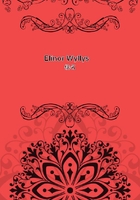
第46章
"I doubt if it is at all an advantage to send most young men to Europe. I've seen so many come back conceited, and dissatisfied, and good-for-nothing, that I can't make up my mind to spoil Ben by the same process. He tries very hard to persuade me, that now-a-days, no doctor is fit to be trusted who has not finished off in Paris; but we managed without it thirty years ago."
"You must know much more than I do on that subject, doctor," said Hazlehurst, taking a seat on the other side of Elinor.
"Of course, I know more about the hospitals. But as I have never been abroad myself, I don't know what effect a sight of the Old World has on one. It seems to me it ruins a great many young fellows."
"And it improves a great many," said Hazlehurst.
"I am by no means so sure of that. It improves some, I grant you; but I think the chances are that it is an injury. We have happened to see a great deal, lately, of two young chaps, nephews of mine, who came home last spring. Three years ago they went abroad, sober, sensible, well-behaved lads enough, and now they have both come back, worse than good-for-nothing. There was Rockwell, he used to be a plain, straight-forward, smooth-faced fellow; and now he has come home bristling with whiskers, and beard, and moustaches, and a cut across the forehead, that he got in a duel in Berlin. Worse than all, his brain is so befogged, and mystified, that he can't see anything straight to save his life; and yet, forsooth, my gentleman is going to set the nation to rights with some new system of his own."
"I know nothing of the German Universities, doctor, from my own observation; but I should think it might be a dangerous thing to send a young man there unless he was well supplied with sound common sense of his own."
"Well, there is Bill Hartley, again, who staid all the time in Paris. He has come back a regular grumbler. If you would believe him, there is not a single thing worth having, from one end of the Union to the other. He is disgusted with everything, and only last night said that our climate wants fog! Now, I think it is much better to go plodding on at home, than to travel for the sake of bringing back such enlarged views as make yourself and your friends uncomfortable for the rest of your days."
"But it is a man's own fault, my dear sir, if he brings back more bad than good with him. The fact is, you will generally find the good a man brings home, in proportion to the good he took abroad."
"I'm not so sure of that. I used to think Rockwell was quite a promising young man at one time. But that is not the question.
If, after all, though it does sharpen a man's wits, it only makes him discontented for the rest of his life, I maintain that such a state of improvement is not to be desired. If things are really better and pleasanter in Europe, I don't want to know it. It would make me dissatisfied, unless I was to be a renegade, and give up the country I was born in; would you have a man do that?"
"Never!" said Harry. "I hold that it is a sort of desertion, to give up the post where Providence has placed us, unless in extreme cases; and I believe a man can live a more useful and more honourable life there than elsewhere. But I think travelling a very great advantage, nevertheless. The very power of comparison, of which you complain, is a source of great intellectual pleasure, and must be useful if properly employed, since it helps us to reach the truth."
The doctor shook his head. "I want you just to tell me how much of this grumbling and fault-finding is conceit, and how much is the natural consequence of travelling? Is everything really superior in Europe to what we have here?"
"Everything? No;" said Harry, laughing. But you would seem to think a man dissatisfied, doctor, if he did not, on the contrary, proclaim that everything is immeasurably better in this country than in any other on the globe. Now, confess, is not that your standard of patriotism?"
"Ah, you are shifting your ground, young gentleman. But we shall bring you to the point presently. Now tell us honestly, were you not disappointed with the looks of things when you came back?"
"If by disappointed, you mean that many things as I see them now, strike me as very inferior to objects of the same description in Europe, I do not scruple to say they do. When I landed, I said to myself, "'The streets are narrow and the buildings mean; Did I, or fancy, have them broad and clean?'"
{George Crabbe (English poet, 1754-1832), "Posthumous Tales: Tale VI--The Farewell and Return", Part II, lines 79-80}
"I feared so!" and the doctor looked much as a pious Mahometan might be supposed to do, if he were to see a Frank seize the Grand Turk by the beard. "I should have thought better of you," he added.
{"Frank" = a European Christian; "Grand Turk" = Ottoman Emperor}